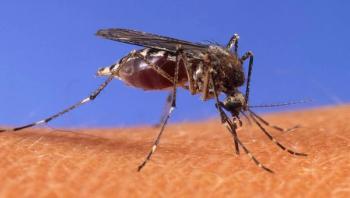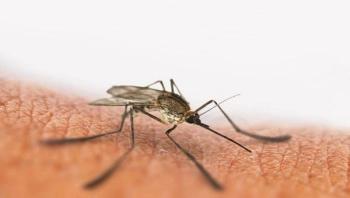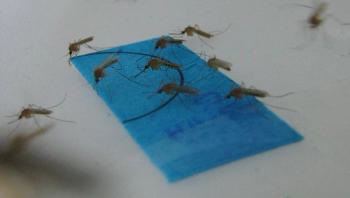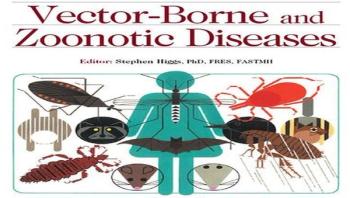
News








Contact tracing -- a process of identifying everyone who has come into contact with those infected by a particular disease -- combined with targeted, indoor spraying of insecticide can greatly reduce the spread of the mosquito-borne dengue virus, finds a study led by Emory University researchers funded by the National Science Foundation (NSF).



The mosquito Aedes aegypti, which can spread dengue fever, chikungunya, Zika fever, and yellow fever virus, requires a blood meal to develop eggs. One way to control the spread of these diseases is to tamper with the reproductive events that follow this mosquito's blood meal. This is what a team of scientists at the University of California, Riverside has explored at the molecular level. The researchers focused on small regulatory RNA molecules, called microRNAs, which play a critical role in mosquito egg maturation.







The human whipworm, which infects 500 million people and can damage physical and mental growth, is killed at egg and adult stage by a new drug class developed at the Universities of Manchester and Oxford and University College London.



About the size of a tablet, a portable device that could be used in a host of environments like a busy airport or even a remote location in South America, may hold the key to detecting the dreaded Zika virus accurately, rapidly and inexpensively using just a saliva sample. While scientists across the world are scrambling to find some sort of immunization, researchers from Florida Atlantic University are working to develop a diagnostic tool to reduce the impact of the outbreak until a vaccine is identified.

Australia's Ross River Virus (RRV) could be the next mosquito-borne global epidemic according to a new research study led by the University of Adelaide and the Australian National University. The virus has been thought to be restricted largely to Australia and Papua New Guinea where it is harbored by marsupial animals, specifically kangaroos and wallabies, and spread by mosquitoes.

The National Institute of Allergy and Infectious Diseases (NIAID), part of the National Institutes of Health (NIH), has launched a Phase 1 clinical trial to test an investigational vaccine intended to provide broad protection against a range of mosquito-transmitted diseases, such as Zika, malaria, West Nile fever and dengue fever, and to hinder the ability of mosquitoes to transmit such infections. The study, which is being conducted at the NIH Clinical Center in Bethesda, Maryland, will examine the experimental vaccine's safety and ability to generate an immune response.

A Rice University study suggests that researchers planning to use the CRISPR genome-editing system to produce designer gut bacteria may need to account for the dynamic evolution of the microbial immune system. CRISPR is an acquired immune system that allows bacteria and other single-celled organisms to store snippets of DNA to protect themselves from viruses called phages. The system allows a cell to "remember" and mount a defense against phages it has previously battled.

The mosquito-borne Zika virus might be able to infect and reproduce in a variety of common animal species, and a new study looked at 16 different types of animals, including goats, pigeons, raccoons, and ducks, to determine their potential to serve as hosts for Zika virus. Understanding possible transmission routes and the role that animal infections could play in the transmission and spread of Zika virus is crucial for effective surveillance and prevention efforts, as described in an article published in Vector-Borne and Zoonotic Diseases, a peer-reviewed journal from Mary Ann Liebert, Inc., publishers.

They traveled a huge distance, evaded a protective barrier, and found themselves in a strange and unwelcoming land. They're looked at suspiciously for possible links to dangerous diseases, and are under constant threat of being expelled from their adopted home. Their contribution to the greater community is only beginning to be understood. And every day, more of them arrive. "They" are immigrants -- of the microscopic kind. Specifically, they're bacteria living in human lungs. And new research pinpoints just how they get there, and opens the door to more research on what happens to them -- and our bodies -- as a result.


Children exposed to Zika virus in the womb may face complex health and developmental problems as they grow older, according to discussions at a National Institutes of Health workshop. A summary of the proceedings, authored by researchers from NIH's Eunice Kennedy Shriver National Institute of Child Health and Human Development (NICHD), is available in the latest issue of JAMA Pediatrics.
